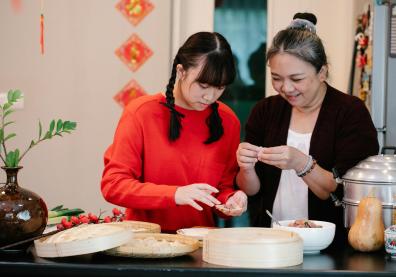JPCI - Transmissions

The "Intangible Cultural Heritage" (ICH) defined by UNESCO in October 2003 recorded eating habits and culinary practices for the first time in 2010. France was the first to register its "gastronomic meal", followed by other countries such as Japan, Greece, Italy, Kenya, Senegal and, more recently, Peru and Lebanon. To date, 18 countries and 5 regions have had their culinary and food heritage registered with UNESCO.
Cooking and eating are above all practices based on human exchange. Whether it's the moment of eating or the moment of preparing the meal, there is transmission and sharing. Skills, knowledge, gestures, techniques, table manners, tastes and aromas are at the heart of culinary and food transmissions, making them central on an individual, family or sometimes intergenerational scale. Whether at home or at work, cooking is a wonderful way to study and understand how human beings are characterized by their ability to transmit and exchange, just as it enables us to discover life paths that are as distinct as each other. In this round-table discussion, our speakers will look back at the different ways in which the process of culinary transmission takes place in different social and cultural contexts, to show how cuisines and foods are so central to our understanding of humankind.
Moderator: Nicolas Elias, lecturer in anthropology at Inalco (Eurasia Department, Turkish section)
Interventions:
- Sandrine Ruhlmann, anthropologist, research fellow at CNRS
- Alexandre Bella Ola, Cameroonian chef, owner of restaurant Rio Dos Camaraos in Montreuil and caterer Moussa l'Africain
- Jonas Pariente, author and producer of Grandmas Project